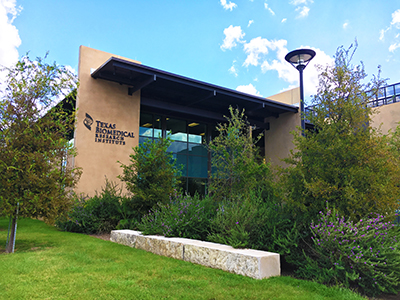Southwest National Primate Research Center
Grant Number: P51OD011133
Research Emphasis/Objectives
The Southwest National Primate Research Center (SNPRC) supports studies of nonhuman primate (NHP) models for human diseases, including common chronic diseases and infectious diseases, and the effects that genetics and the environment have on physiological processes and susceptibility to specific diseases.
Funded by ORIP, the SPNRC is a unit of Texas Biomedical Research Institute, a not-for-profit, independent research institute with a strong history of pioneering biomedical breakthroughs that have contributed to the world of science and human health for more than 80 years. SPNRC's mission is to improve the health of the global community through innovative biomedical research with NHPs.
Current Research
Infectious Disease, Immunology and Control
The Infectious Disease, Immunology and Control (IDIC) Scientific Unit has expertise in infectious agents in NHP models. The expertise of the core scientists and their affiliated colleagues encompasses the entire spectrum of pathogens, including parasites, bacterial agents, viruses that require Biosafety Levels (BSL) ranging from 2 to 4, and virus-induced cancers. Specific infectious agents being studied include hemorrhagic fever viruses, hepatitis viruses, HIV, TB, and more recently, Zika and SARS-CoV-2.
Comparative Medicine Health Outcomes
The Comparative Medicine Health Outcomes (CMHO) Scientific Unit has research expertise in metabolic diseases, behavioral neuroscience, and aging and development. The goals of this unit are to facilitate and enhance research programs exploring comparative health and to examine correlates of disease susceptibility and resistance in NHP models.
Services Provided
To Outside Investigators
The SNPRC encourages the use of its resources by investigators from the national and international biomedical research communities. The SNPRC also is available for collaborative research initiatives involving center staff and outside investigators. In general, expenses are assumed by the initiating investigator, and collaborative research efforts are covered by grants acquired collaboratively.
Specimens
Banked serum, tissue, and DNA samples. Fresh blood, serum, plasma, tissues, and organs.
Animals
Baboons (Papio hamadryasanubis, P.h. cynocephalus), chimpanzees (Pan troglodytes), rhesus macaques (Macaca mulatta), common marmosets (Callithrix jacchus), miscellaneous primate species as required for specific research purposes.
Veterinary Technical Services
Timed pregnancies, tether, radiography, sonography, endoscopy, experimental surgery, experimental diets, nursery, behavioral assessment. Animal Biosafety Level 3 (ABSL-3) and ABSL-4 laboratories are available for infectious disease research, including research with select agents.
Pathology Services
Necropsies, clinical chemistry, hematology, histology, bacteriology, virology, parasitology.
Immunology Services
Flow cytometry, cytokine and hormone Luminex assays, ELISA, ELISPOT, viral screening, cell separation.
Imaging Services
PET, MRI, ultrasound, neurocognitive assessment, image analysis, transcranial magnetic stimulation, event-related potentials.
Data Services
Colony database system, genetic analysis software, genetic typing services
Contact Information
Texas Biomedical Research Institute
Southwest National Primate Research Center
8715 W. Military Drive
San Antonio, TX 78227-5302
snprc.org
Principal Investigator
Larry S. Schlesinger, M.D.
President and Chief Executive Officer
[email protected]
Other/Resource Contacts
Corinna Ross, Ph.D.
Director
Phone: 210-258-9298
[email protected]



